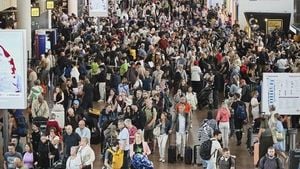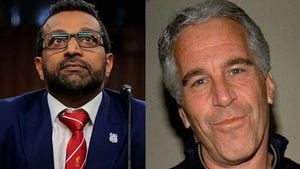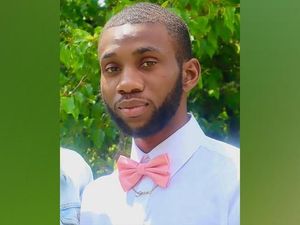Trinidad and Tobago's Parliament has unanimously extended the State of Emergency (SOE) for an additional three months, a decision driven by ongoing threats against the nation's high-ranking officials and critical state institutions. The extension, approved on July 29, 2025, will keep the emergency measures in place until late October, marking a significant continuation of extraordinary security protocols initiated less than two weeks earlier on July 18.
The original SOE was declared in response to a chilling intelligence briefing that revealed a coordinated assassination plot targeting members of the judiciary, the office of the Director of Public Prosecutions, the Trinidad and Tobago Police Service, and other government entities. Authorities identified the source of the threat as a network of jailed gang leaders who were allegedly using smuggled cell phones within the prison system to orchestrate a series of violent crimes, including assassinations, robberies, and kidnappings.
Attorney General John Jeremie delivered a stark assessment of the situation during the parliamentary session, disclosing that the prison system had been compromised to an alarming degree. He accused certain prison officers and attorneys of colluding with inmates, facilitating their criminal activities. "The system has been compromised, and it has been serving inmates as a protected criminal command center," Jeremie stated.
Jeremie elaborated that some prison guards were overheard warning inmates about impending raids by specialized police agents, undermining law enforcement efforts. In response to these security breaches, authorities relocated high-risk prisoners to military bases in western Trinidad. However, even these fortified locations faced threats; Jeremie revealed that two drones recently infiltrated these military sites but were successfully intercepted by the military.
The gravity of the threat was underscored by Legal Affairs Minister Saddam Hosein, who emphasized the necessity of the SOE extension. "We are here for an extension, we are here because the threat exists," Hosein told Parliament, highlighting that the decision followed a formal meeting of the National Security Council at the Diplomatic Centre, based on advice from Commissioner of Police Allister Guevarro.
Prime Minister Kamla Persad-Bissessar addressed the Parliament during the debate, clarifying the government’s position. She stressed that the State of Emergency was not a general crime-fighting initiative but a targeted response to a specific threat emanating from within the prison system. "So we called the State of Emergency (SoE), as I said, not to treat crime per se. It was initiated by the threat posed to the State by actors in the jail, and they were threatening our national security in this nation. We intend to keep that promise. This is but one piece of the plan," she affirmed.
The Prime Minister also reassured citizens that the government's commitment to national safety was sincere and action-oriented, not mere rhetoric. She linked the current emergency to a broader mandate given by the electorate to protect the nation through decisive measures.
Members of Parliament across the political spectrum supported the extension unanimously. Opposition leader Pennelope Beckles echoed the consensus but urged the government to maintain transparency throughout the process. "The public has a right to know what exactly is going on," Beckles said. "If we want national unity and public cooperation, there must be clear communication from the Government." She also highlighted the importance of safeguarding civil liberties even as national security concerns are addressed.
Marvin Gonzales, an opposition MP for Arouca/Lopinot, praised the tireless work of the country’s protective services, who have been operating around the clock to uphold security. Other MPs also contributed to the debate, underscoring the seriousness of the situation while expressing support for the government’s approach.
The Prison Officers’ Association, representing prison guards, vehemently denied the allegations made by Attorney General Jeremie. They condemned the accusations of collusion and emphasized their commitment to maintaining order within correctional facilities. This pushback reflects ongoing tensions between security forces and prison staff amid the heightened scrutiny.
This State of Emergency is the second in recent months, following a previous declaration in December 2024 that addressed escalating gang violence and lasted until mid-April 2025. The renewed emergency measures come at a sensitive time, coinciding with the 35th anniversary of the 1990 attempted coup by the Islamist group Jamaat-al-Muslimeen, which resulted in 24 deaths. Attorney General Jeremie drew parallels between the current threats and those historic events, noting that the circumstances are "not dissimilar from those at that time."
Since the SOE was first proclaimed on July 18, law enforcement agencies have intensified their operations. The government reported that over 340 arrests have been made and more than 800 operations launched to dismantle criminal networks and prevent any insurrection. Despite these efforts, the persistence of the threat necessitated the unanimous parliamentary vote to extend the emergency powers.
While some opposition members questioned the effectiveness of the initial 10 days of the SOE, pointing to a lack of major arrests, government officials stressed the complexity of the investigations and the ongoing nature of the security challenge. The extension aims to provide law enforcement with the necessary time and authority to fully address the threat.
Trinidad and Tobago’s decision to prolong the State of Emergency highlights the delicate balance between ensuring national security and protecting democratic freedoms. As the government navigates this precarious period, the eyes of the nation remain fixed on the evolving situation, hopeful for a resolution that restores safety without compromising civil rights.




